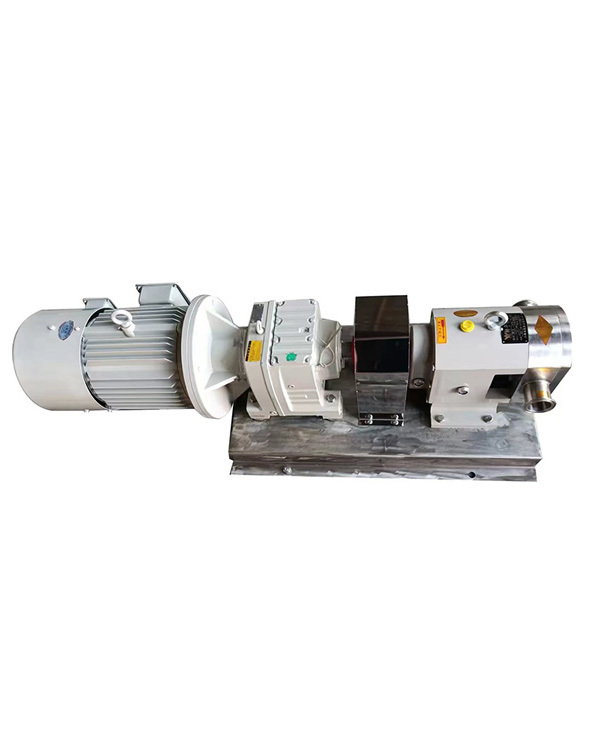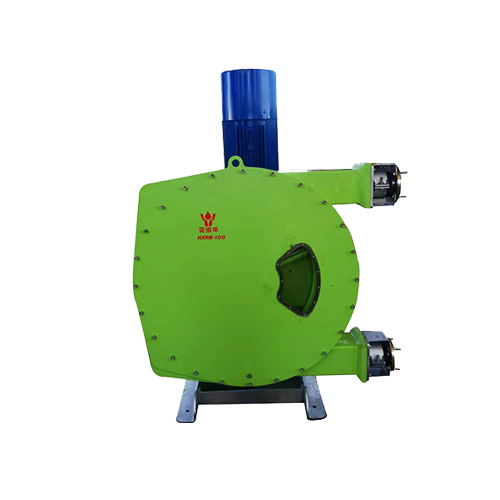Transform Your Production Line with Rotary Lobe Pumps for Syrup Applications
May 18,2025

Transform Your Production Line with Rotary Lobe Pumps for Syrup Applications
Introduction to Rotary Lobe Pumps
In the ever-evolving world of industrial manufacturing, **efficiency** and **reliability** are paramount. Particularly in syrup production, where product consistency and quality are vital, the right pumping solution can make all the difference. **Rotary lobe pumps** have emerged as a key player in this sector, known for their ability to handle viscous fluids with finesse. This article explores how rotary lobe pumps can transform your production line, focusing on their unique features, benefits, and operational principles.
Understanding Rotary Lobe Pumps
What Are Rotary Lobe Pumps?
Rotary lobe pumps are positive displacement pumps characterized by two or more lobes that rotate within a chamber, creating a vacuum that draws the fluid into the pump and then displaces it forward. This **mechanical design** allows for a gentle pumping action, making them ideal for handling sensitive products like syrups without causing damage or shear.
Key Characteristics of Rotary Lobe Pumps
- **Gentle Handling of Fluids**: The design minimizes shear forces and turbulence, preserving product integrity.
- **Self-Priming Capabilities**: Rotary lobe pumps can create a vacuum and draw in fluids, even in low-pressure situations.
- **Versatile Flow Rates**: They can be tailored to different applications by adjusting the pump speed or size, allowing for a wide range of flow rates.
- **Easy Maintenance**: With fewer moving parts and a simple design, maintenance and cleaning can be performed quickly and efficiently.
Benefits of Using Rotary Lobe Pumps in Syrup Production
Enhanced Product Quality
One of the primary benefits of rotary lobe pumps is their ability to maintain the quality of syrups throughout the pumping process. Their gentle pumping action reduces the risk of damaging sensitive ingredients, ensuring that the final product retains its original flavor and texture.
Improved Efficiency and Consistency
Rotary lobe pumps provide consistent flow rates, which are crucial for maintaining the quality and consistency of syrup products. This reliability translates to increased production efficiency, allowing manufacturers to meet demand without compromising quality.
Cost-Effectiveness
While the initial investment in rotary lobe pumps may be higher than other pumping solutions, their durability and low maintenance requirements can lead to substantial cost savings over time. Reduced downtime and fewer repairs contribute to a better return on investment.
Operational Principles of Rotary Lobe Pumps
How Rotary Lobe Pumps Work
The operation of a rotary lobe pump begins with the rotation of the lobes inside the pump casing. As the lobes rotate, they create pockets that trap the syrup and move it from the inlet to the outlet. This process occurs in four stages:
1. **Filling** - As the lobes rotate away from each other, a vacuum is formed, drawing in syrup.
2. **Transporting** - The trapped syrup is carried around the casing by the lobes.
3. **Discharging** - As the lobes approach each other, the volume decreases, forcing the syrup out through the discharge port.
4. **Repeat** - The cycle continues, providing a steady flow of syrup.
Types of Rotary Lobe Pumps
There are several types of rotary lobe pumps, each suited to different applications. Common types include:
- **Twin-lobe Pumps**: Feature two lobes, often used for low to medium viscosity fluids.
- **Tri-lobe Pumps**: Provide smoother flow and are suitable for higher viscosity applications.
- **Multi-lobe Pumps**: Utilize more than three lobes for specialized applications requiring lower shear and better flow characteristics.
Choosing the Right Rotary Lobe Pump for Your Syrup Production
Factors to Consider
When selecting a rotary lobe pump for syrup applications, several factors should be considered:
- **Viscosity of the Syrup**: The pump must be capable of handling the specific viscosity of your syrup.
- **Flow Rate Requirements**: Determine the flow rate needed for your production line to select a pump that meets these specifications.
- **Material Compatibility**: Ensure that the pump materials are compatible with the syrup ingredients to prevent contamination.
- **Cleaning and Maintenance Needs**: Consider pumps that are easy to disassemble and clean, particularly in food processing environments.
Top Brands and Models
Several manufacturers are renowned for their high-quality rotary lobe pumps. Brands such as **Waukesha Cherry-Burrell**, **Alfa Laval**, and **Verder** offer various models designed for syrup applications, each with unique features that cater to different production needs.
Applications of Rotary Lobe Pumps in Syrup Production
Common Uses in the Syrup Industry
Rotary lobe pumps are versatile and can be used in various syrup applications, including:
- **Sugar Syrups**: Used in the production of beverages and confections.
- **Corn Syrups**: Commonly used in the food industry for sweetening.
- **Maple Syrups**: Ideal for transferring and bottling pure maple syrup.
- **Flavored Syrups**: Used in specialty beverages and toppings.
Case Studies of Successful Implementations
Many companies have successfully integrated rotary lobe pumps into their syrup production lines. For instance, a beverage manufacturer reported a **30% increase in production efficiency** after replacing their diaphragm pumps with rotary lobe pumps, significantly improving product consistency and reducing waste.
Maintenance Tips for Rotary Lobe Pumps
Routine Maintenance Practices
To ensure optimal performance, regular maintenance is essential. Some key maintenance practices include:
- **Regular Inspections**: Check for wear and tear on the lobes and casing.
- **Cleaning Protocols**: Implement a cleaning regime to prevent product buildup and contamination.
- **Lubrication**: Ensure that all moving parts are adequately lubricated to reduce friction and wear.
Signs that Maintenance is Needed
Be attentive to signs that your rotary lobe pump may require maintenance, such as:
- Fluctuations in flow rate.
- Unusual noises during operation.
- Increased energy consumption.
Conclusion
In the competitive landscape of syrup production, utilizing advanced technologies such as rotary lobe pumps can significantly enhance operational efficiency, product quality, and cost-effectiveness. By understanding the unique benefits and operational principles of these pumps, manufacturers can make informed decisions that optimize their production lines. Investing in rotary lobe pumps is not just about improving immediate output; it’s about ensuring long-term success and customer satisfaction in an ever-changing market.
FAQs
1. What is the average lifespan of a rotary lobe pump?
The lifespan of a rotary lobe pump can vary, but with proper maintenance, they typically last between 5 to 15 years.
2. Can rotary lobe pumps handle shear-sensitive products?
Yes, rotary lobe pumps are designed to handle shear-sensitive products gently, making them ideal for syrup applications.
3. How do I determine the correct pump size for my application?
To determine the correct pump size, consider the viscosity of your syrup and the required flow rate. Consulting with a pump specialist can also provide valuable insights.
4. Are rotary lobe pumps suitable for CIP (Clean-In-Place) systems?
Yes, many rotary lobe pumps are designed to be compatible with CIP systems, allowing for efficient cleaning without disassembly.
5. What maintenance is required for rotary lobe pumps?
Routine maintenance includes regular inspections, cleaning, lubrication, and monitoring for any signs of wear or performance issues.
Contact Us
E-mail :
sales@yaquanpump.com
service@yaquanpump.com
Phone/WhatsApp:
+44 7301702546
+63 9452052801
Address:
Room B208, Building 2, North Hongqiao Songri Center, No.215 Gaochao Road, Jiading District, Shanghai









